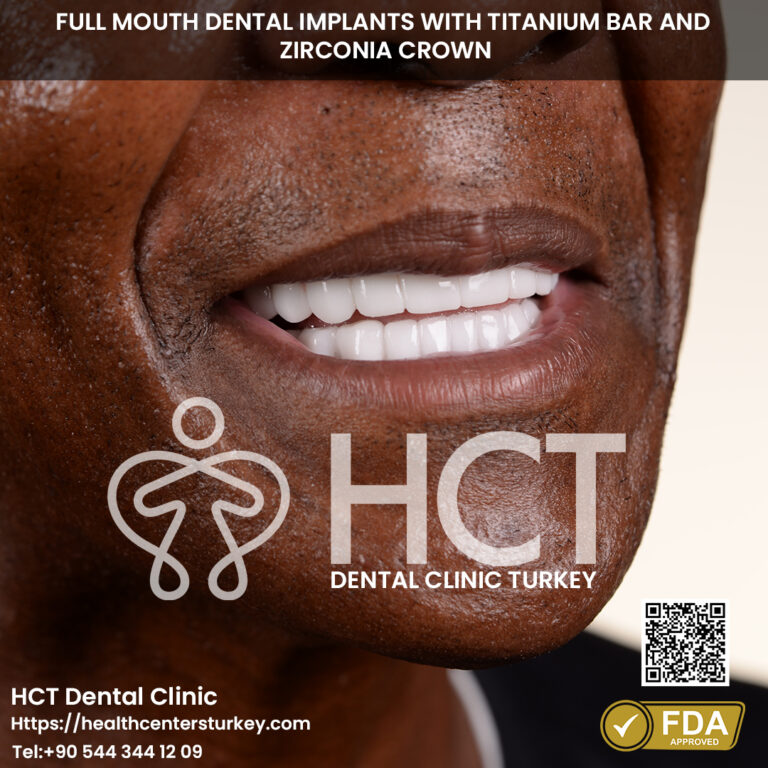The Place for Quality Dental Care at Value Rates
The Place for Quality Dental Care at Value Rates
Blog Article
Cost-Efficient Cosmetic Enhancements in Turkey
Dental implants have become a popular answer for these seeking to replace missing teeth. Understanding how these implants can affect adjacent teeth is crucial for anyone considering this procedure, in addition to for dentists and specialists concerned in dental care.

One important facet is that dental implants are designed to be anchored into the jawbone, which means they're impartial of adjacent teeth. Unlike dental bridges, which frequently require the alteration of neighboring teeth, implants can fill the gap with out compromising the health or structure of those surrounding teeth.
This independence helps maintain the integrity of adjacent teeth. When a tooth is misplaced, there could be a natural tendency for neighboring teeth to tilt or shift into the empty house. Such movement can lead to misalignment, which might affect bite and total oral health. By putting an implant, you successfully prevent this potential shift, promoting higher alignment in the long term.
Elevate Your Smile through Cosmetic Dentistry
Additionally, dental implants assist keep bone density in the jaw. A natural tooth root offers stimulation to the surrounding bone, maintaining it wholesome and strong. When a tooth is missing, the bone can start to deteriorate because of lack of stimulation. With a dental implant mimicking a natural root, bone loss can be minimized, which indirectly advantages adjacent teeth by preserving the general structure of the dental arch.
While dental implants are advantageous, improper placement can influence neighboring teeth. If an implant is positioned too shut to another tooth, it might exert undue pressure on that tooth, resulting in discomfort or potential damage. Proper planning and imaging methods are important for avoiding such issues.
Get Top-notch Dental Implants with Affordable Costs
Moreover, maintaining good oral hygiene is essential after receiving an implant. If not properly cleaned, surrounding teeth might become vulnerable to dental points similar to decay or gum disease. This underscores the significance of diligent oral care following the procedure to make sure both implants and adjacent teeth remain wholesome.
Regular dental check-ups are also very important for monitoring the health of surrounding teeth. Dentists can establish any shifts or potential problems early, allowing for well timed interventions. This proactive method ensures that both the implant and adjacent teeth can coexist with out complications.
Enhance Your Smile with Dental Veneers in Turkey
Another consideration is the impact of implants on chew drive. When a single tooth is missing, the load of chewing may shift to adjacent teeth, doubtlessly leading to wear or pressure. Implants restore correct bite dynamics by redistributing forces within the mouth, which might protect surrounding teeth from undue stress.
Some patients could raise considerations in regards to the appearance of dental implants. Well-placed implants can mix seamlessly with existing teeth, enhancing total aesthetics. In contrast, failing to exchange a missing tooth can result in aesthetic issues, including collapsing of facial structure and modifications in smile dynamics.
It's additionally worth discussing the psychological elements of dental health. Experiencing tooth loss can adversely have an result on one’s self-esteem and willingness to engage socially. By restoring your smile with implants, you presumably can positively influence not only your oral health but in addition your emotional well-being.
Long-term success of dental implants typically hinges on varied components, together with the patient's health, maintenance habits, and the quality of the initial procedure. If adjacent teeth are healthy and correctly cared for, the likelihood is that they may continue to thrive alongside the implants.
Find Your Perfect Dental Clinic in Turkey for Aesthetic Procedures
In conclusion, dental implants play a crucial role in not just restoring individual smiles, but in preserving the health and structure of adjacent teeth. By preventing shifting, sustaining bone density, and redistributing chew forces, implants can ensure that surrounding teeth remain in optimum condition. Proper placement, hygiene, and common dental visits can additional improve the advantages of dental implants, resulting in a more healthy, extra assured smile for years to come back.
- Dental implants can help maintain the alignment of adjacent teeth by providing a secure anchor, preventing adjacent teeth from shifting into the gap left by a missing tooth.
- The presence of an implant might stimulate bone progress in the jaw, helping to preserve the general structure and integrity of the adjacent teeth.
- Unlike conventional bridges, implants do not require alteration of surrounding teeth, thus preserving their power and anatomy.
- Implants can enhance the distribution of bite forces evenly across the dental arch, reducing the stress on neighboring teeth during chewing.
- A well-integrated dental implant can decrease the chance of bone loss within the space surrounding adjacent teeth, contributing to their long-term health and stability.
- The aesthetics of adjacent teeth could be improved due to the help offered by implants, which can lead to higher total beauty outcomes.
- With proper placement, dental implants can prevent gum recession around adjacent teeth by maintaining sufficient dental structure.
- Implants may help mitigate the risks of periodontal disease in close by teeth by promoting healthy gum tissue and offering a washable floor.
- Long-term success of dental implants can lead to improved oral hygiene routines, which in flip benefits the health of surrounding teeth.
- The improved functional ability of an implant can encourage patients to chew extra successfully, thus growing saliva production and aiding within the safety of adjacent dental tissues.undefinedHow do dental implants have an effect on adjacent teeth?
What are dental implants and how do they work together with adjacent teeth?undefinedDental implants are synthetic tooth roots which may be surgically placed into the jawbone. They present a secure foundation for replacement teeth whereas making useful link certain minimal disruption to adjacent teeth, preserving their integrity and alignment. Price Comparison for Dental Care in Turkey.
Essential Information about Dental Tourism in Turkey
Can dental implants trigger problems for close by natural teeth?undefinedGenerally, dental implants do not harm adjacent natural teeth. However, if the implant just isn't placed correctly or if there’s inadequate oral hygiene, it could lead to complications corresponding to adjacent tooth decay or gum disease.

Will getting a dental implant change the way in which my adjacent teeth feel?undefinedMost patients report no change within the sensation of adjacent teeth after implant placement. However, it could take a while to regulate to the presence of the implant, much like how one could adapt to different dental restorations.
Can dental implants assist protect the health of adjacent teeth?undefinedYes, dental implants might help keep the health of adjacent teeth by preventing bone loss that can occur after tooth loss. This preservation supports the alignment of close by teeth, lowering the chance of shifting or misalignment.
Uncover Budget-Friendly Dental Care in Turkey
Do I need to modify adjacent teeth when getting an implant?undefinedTypically, adjacent teeth do not need alteration when putting an implant. This is likely one of the advantages of dental implants over conventional bridges, which frequently require reshaping adjacent teeth for help.
How does the healing strategy of an implant have an result on close by teeth?undefinedThe therapeutic course of entails osseointegration, where the implant fuses with the jawbone. During this time, adjacent teeth remain unaffected and retain their operate, although it’s important to observe post-operative care suggestions. Innovative Oral Health Techniques for Every Patient.
Tailored Dental Solutions for Individuals Seeking Care in Turkey
Can dental implants lead to bone loss round adjacent teeth?undefinedIf dental implants are positioned correctly and cared for adequately, they want to not lead to bone loss round adjacent teeth. In truth, they can help stimulate bone development, combating the natural bone loss that usually follows tooth extraction.
What precautions should I take to protect adjacent teeth after getting an implant?undefinedRoutine dental hygiene, including brushing and flossing, together with regular dental check-ups, is essential. Avoiding onerous meals and following your dentist’s aftercare directions may also protect each the implant and adjacent teeth.
Is it widespread for adjacent teeth to shift after an implant is placed?undefinedIt's not typical for adjacent teeth to shift after an implant placement, especially when the implant is positioned correctly and maintained correctly. If there’s any movement, it could be because of other underlying points that should be evaluated look at this web-site by a dental skilled. Report this page